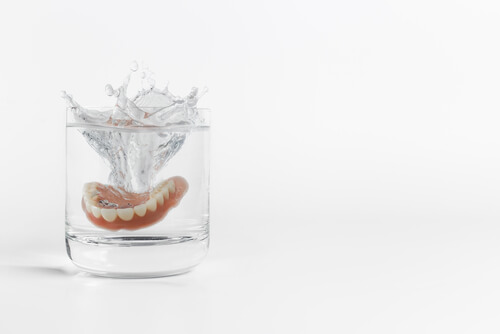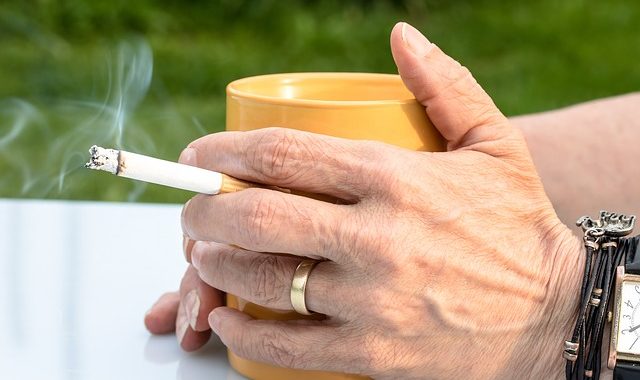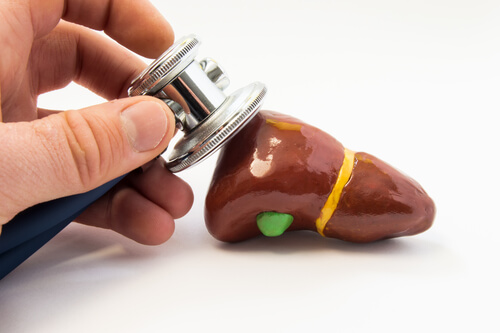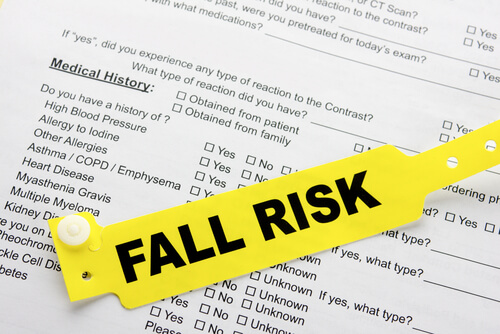
Poor Oral Health Linked to One in Ten Deaths in Seniors
From the time our first incisors pop through our gum line, doctors and dentists urge us to brush and floss our teeth every day to keep our mouths healthy. Poor oral hygiene leads to all manner of problems, from simple cavities to life-threatening infections of the gum line and underlying bone. Researchers have even found a link between oral hygiene — flossing in particular — and heart disease. For all the benefits of taking care of our mouths, many people fail to do so. More concerning, seniors are especially vulnerable to health problems that arise from poor oral health, especially aspiration pneumonia. In fact, one in ten seniors dies from complications that arise from dental neglect and subsequent aspiration pneumonia.
One in ten seniors die from aspiration pneumonia.
A recent study review released by the University Clinics of Dental Medicine in Geneva, Switzerland, and published in the U.S. National Library of Medicine, found that aspiration pneumonia, as a result of poor oral hygiene and health, was a leading cause of deadly infections among the elderly. Specifically, one in ten elderly patients admitted to the hospital presented with aspiration pneumonia.
The same study reviewed previous findings from Japan, where aspiration pneumonia was also found to be a leading cause of infection and death in nursing homes. That study found that five minutes of tooth brushing after every meal and professional hygiene provided once a week reduced the incidence of aspiration pneumonia by over 40%.
Additionally, the researchers from Japan found that wearing dentures at night doubled the risk of aspiration pneumonia in very old persons and that removing dentures during sleep completely removed that risk. Combined, five minutes of tooth brushing after every meal and professional hygiene provided once a week as well as removing dentures at night nearly completely removed the risk of aspiration pneumonia in seniors in nursing homes.
What is aspiration pneumonia?
Aspiration pneumonia is a form of lung infection that arises from the inhalation of debris from the mouth. Debris can include food particles, saliva, mucosal excretions, among other things. In healthy adults, small amounts of aspirated materials do not pose much of a threat because their bodies can quickly expel the debris. In seniors, particularly those with other physical ailments, the body’s ability to expel aspirated material is diminished, which leads to infection, pneumonia, and often death.
How does poor oral health contribute to aspiration pneumonia?
Aspirated material does not pose a significant threat to a healthy person’s life. Poor oral health among seniors, however, increases the risk of aspiration pneumonia for several reasons. First, poor oral hygiene leads to an increased risk for other pathogens to take root in the mouth. These pathogens may not cause significant harm or discomfort while in the mouth, but can quickly spread to the lungs through aspiration. Second, the use of dentures can contribute accidental aspiration, especially if those dentures are not cleaned regularly.
How to reduce the risk of aspirated pneumonia
As mentioned previously, researchers from Japan found that five minutes of tooth brushing after every meal and professional hygiene provided once a week reduced the incidence of aspiration pneumonia by over 40%. Critical to their findings is the fact that the caregivers administering the tooth brushing after every meal were adequately trained to effectively provide oral hygiene care.
The bottom line from all the research is that given adequate oral care, seniors can significantly reduce their risk of dying from aspirated pneumonia.
Contributing factors to poor oral hygiene among seniors.
Good oral hygiene is most often developed in childhood and sets a precedent for the rest of a person’s life. Those people who have poor oral hygiene habits early in life tend to carry those habits into their golden years. However, people with poor oral hygiene habits account for a tiny fraction of cases. For the most part, the challenges of aging are what prevent seniors from keeping up with their flossing.
“There are layers upon layers that can make it very difficult,” said Susan Hyde, division chair of oral epidemiology and dental public health at University of California at San Francisco School of Dentistry in a recent article for The Washington Post.
Seniors face tremendous obstacles toward oral health because of other ailments they develop that overshadow the risks posed by a poor oral hygiene. Many seniors, particularly those who have suffered strokes, have dementia, and other physical disabilities, struggle to care for themselves. “They can’t take care of their own teeth and are prone to tooth decay and subject to pain,” Hyde said in the article. “It becomes very complicated.”
Since many seniors cannot care for themselves, it falls on caregivers to keep up with oral health. Unfortunately, most caregivers lack the skill or understanding of best practices to effectively implement an oral hygiene regiment. The problem encompasses caregivers of several kinds, including family caregivers and professional caregivers hired for companion care. Without proper care, seniors continue to face a high risk of aspiration pneumonia.
Dental neglect
One of the leading causes of oral health problems among seniors is dental neglect. Dental neglect is the willful neglect of a senior’s oral hygiene while under professional care. There are many reasons why a senior may resist assistance with brushing their teeth, but this does not mean caregivers can neglect that part of their duties. Unfortunately, this is too often the case. Caregivers who neglect dental care put their patients at a significant risk of death from aspiration pneumonia. To learn more about the history of dental neglect.
Housecall dentistry
Among the many solutions for preventing aspirated pneumonia deaths is an effort to create easier access to professional dental care. One company, called Smiles by Delivery, is looking to create positive change by delivering dental care to seniors in their homes. Currently operating locally in Phoenix, Arizona, this model of at-home dental care could help reduce oral health risk significantly. Combined with skilled caregivers who brush seniors’ teeth after every meal, house call dentistry is one solution that could prevent many deaths from poor oral hygiene.






